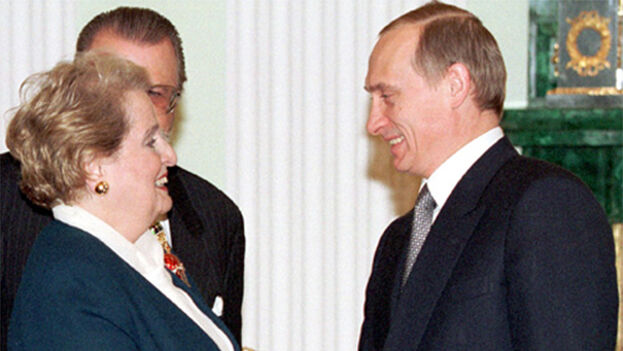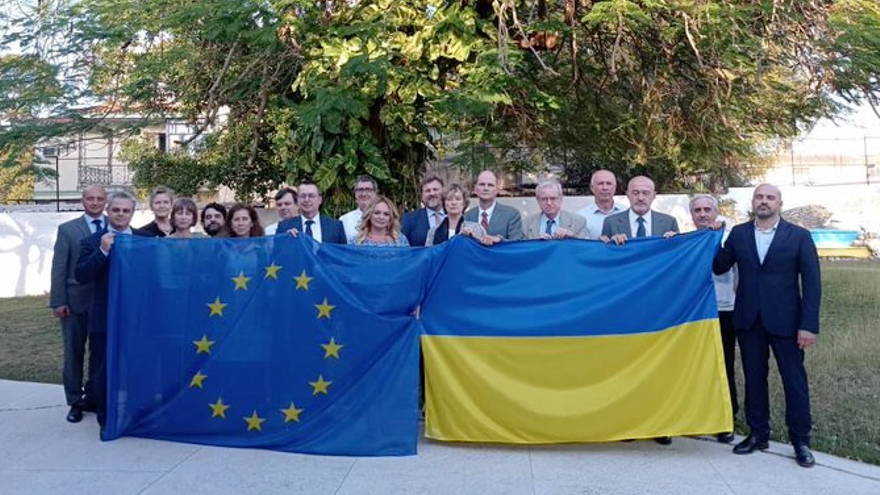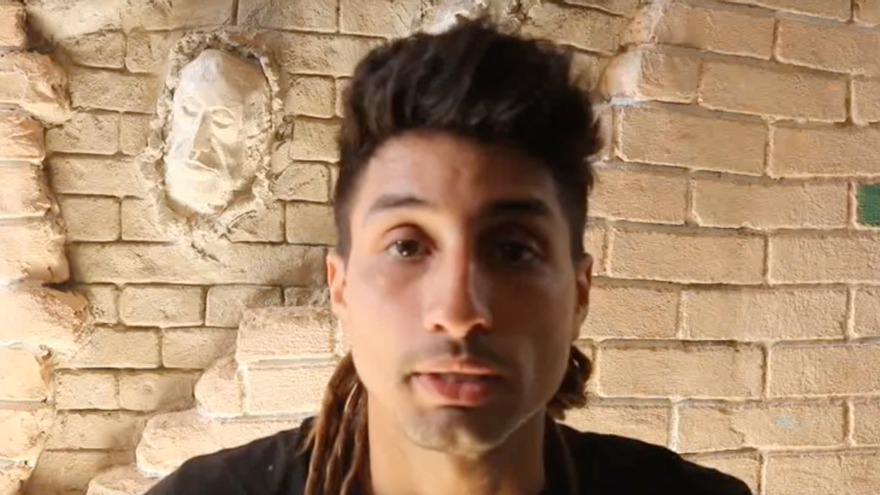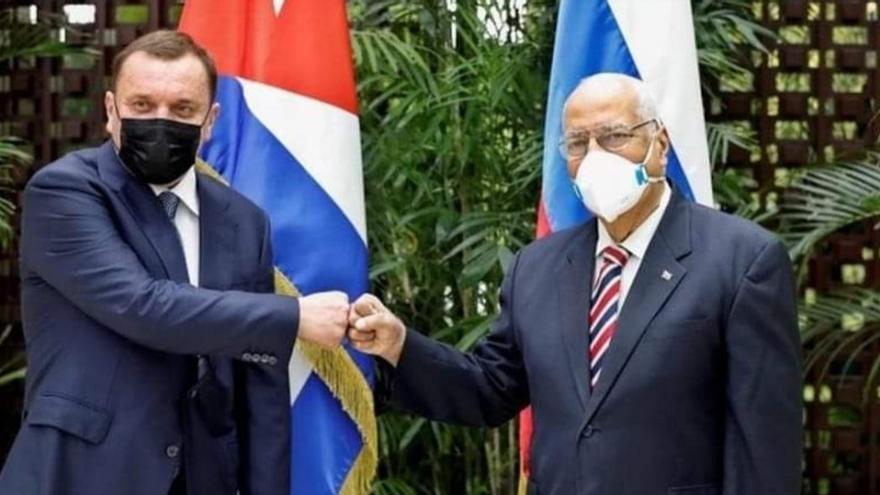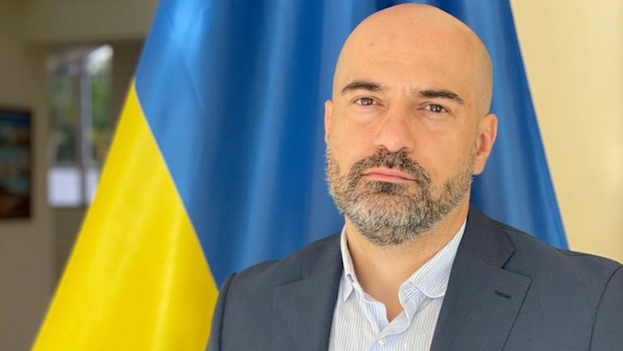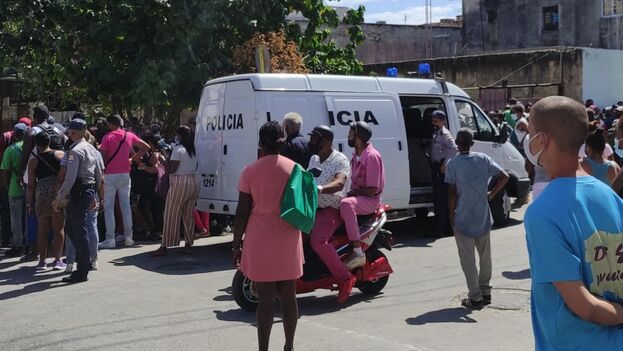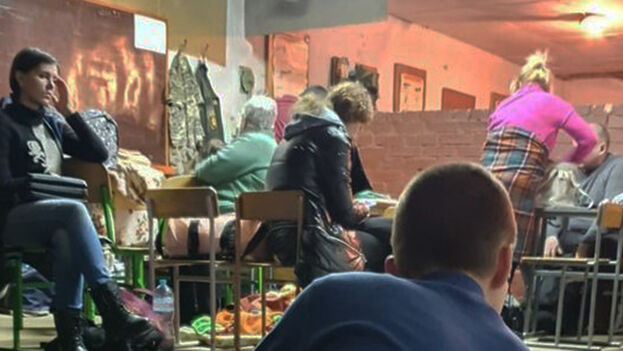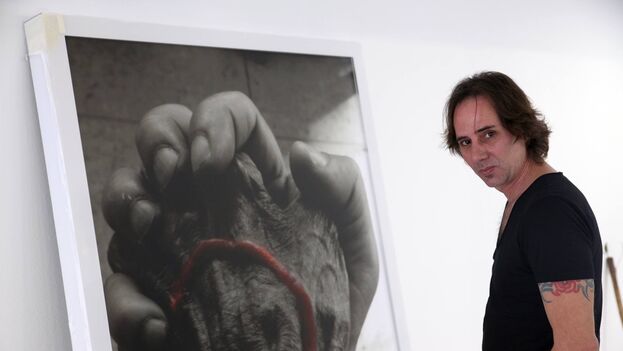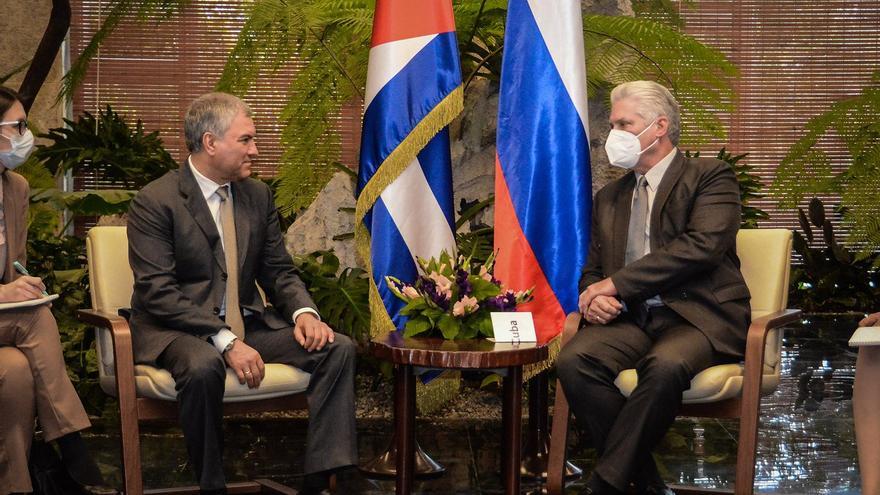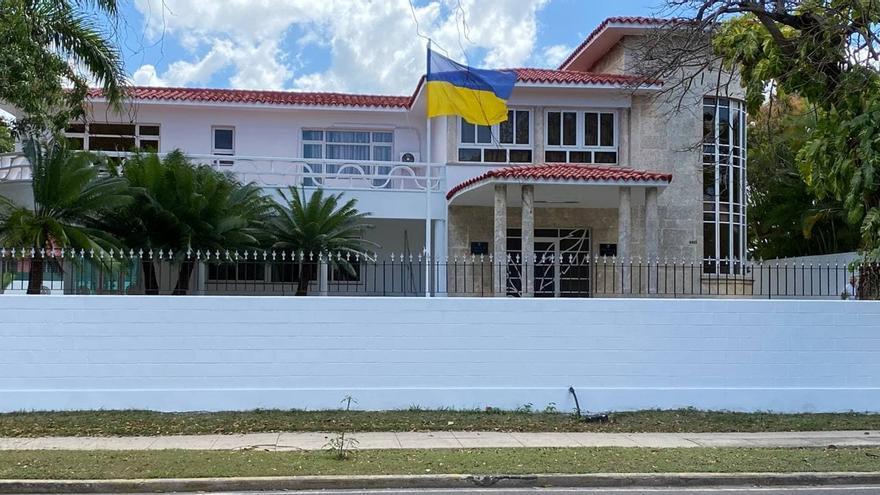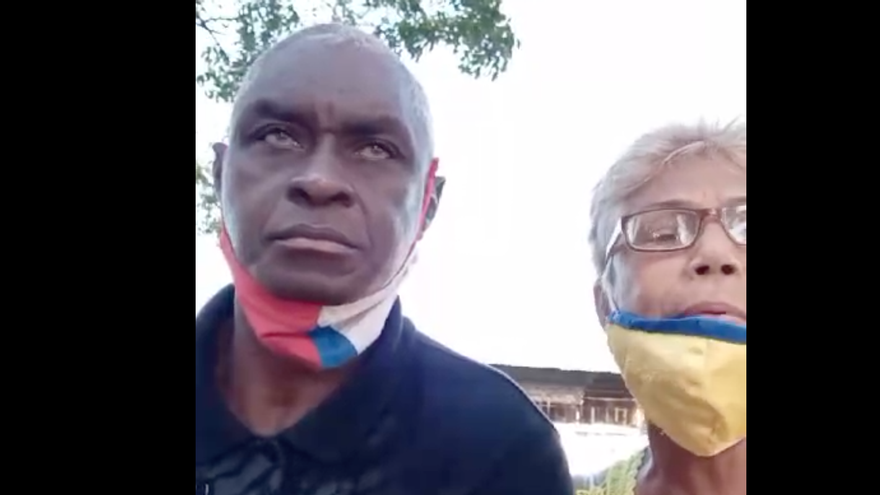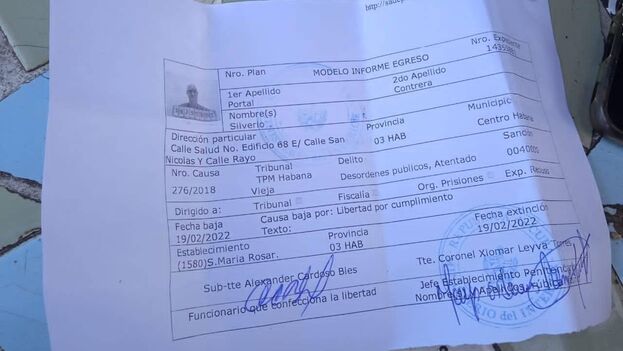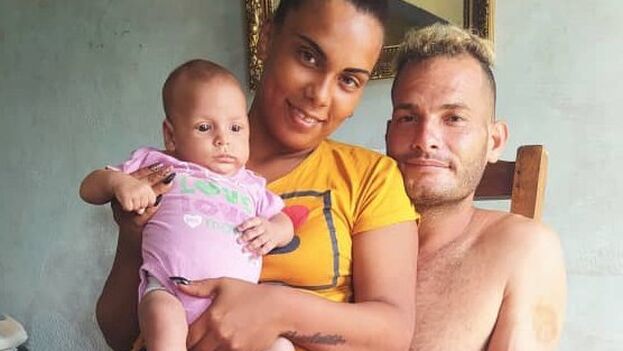
![]() 14ymedio, Luz Escobar, Havana, 24 February 2022 — Gerardo Díaz Alonso, one of the protesters on July 11 in Cárdenas, Matanzas, has been on a hunger strike since Friday, protesting that he was sentenced to 14 years for the crimes of sabotage and public disorder.
14ymedio, Luz Escobar, Havana, 24 February 2022 — Gerardo Díaz Alonso, one of the protesters on July 11 in Cárdenas, Matanzas, has been on a hunger strike since Friday, protesting that he was sentenced to 14 years for the crimes of sabotage and public disorder.
His wife, Mercedes Sánchez, with whom he has two children – one a year and a half old and the other just 20 days old – tells 14ymedio of “the pain and impotence” she feels seeing her partner in that situation, which she considers “an injustice”. She is also worried because Díaz Alonso “suffers from kidney disease”, and she fears that his body “will not react very well”.
The prison director himself called relatives to convince him to stop the hunger strike. Thus, Sánchez was able to see her husband this Wednesday. “His state of health is very delicate,” warns this 23-year-old, who says that the prisoner’s mother, who accompanied her, “became very upset” when she saw him: “He is skinny, his face had no color and she felt faint when she saw the state he was in, she urged him to drink a bit of water, and he accepted”. continue reading
Díaz Alonso told his wife that they had him in a “punishment cell” but that several days after he started the strike, they transferred him to the infirmary because his health had deteriorated
Díaz Alonso told his wife that they had him in a “punishment cell” but that several days after he started the strike, they transferred him to the infirmary because his health had deteriorated.
According to her account, they promised him that this Thursday someone from the Prosecutor’s Office would visit the prisoner”, supposedly, for him to put forward his situation”.
Although the trial was held in December, he did not receive his sentence until January 29th. The family was unable to get a hold of the judgement until days later, on February 3rd, which prevented them from appealing. “As far as the Military Prosecutor’s Office, we only had five days”, explains his wife, who complains that the papers arrived late and they were not even notified of the sanction by phone.
The trial, denounces Mercedes Sánchez, “was the worst, they even presented manipulated photos”. The woman says that “only one witness accused him, and he was associated with the police” and that in the only video presented in the trial as incriminating evidence, he “is not shown throwing rocks at anything”, but “standing on a corner”.
Díaz Alonso’s lawyer, continues his wife, argued at the trial that her client “has mental retardation problems”, but far from taking it into account, “they made up many things, and made him look as if he were the worst offender”.
“They said they had made inquiries around the neighborhood, but no official ever went there to do anything”, she continues, “they just made up a circus of lies”. Lies, she laments, “made up by them, as they have done with all the prisoners of 11J, just to find reasons to condemn them”.
“They said they had made inquiries around the neighborhood, but no official ever went there to do anything”, she continues, they just made up a circus of lies”
Her 33-year-old husband was sentenced, along with eight other people: Daniel Joel Cárdenas Díaz (sentenced to 15 years), Leidiana Prohía Guevara (12 years), José Carlos Hernández Barrio (14 years), Yoniel Santana Rodríguez (10 years), José Antonio Cue Monzón (10 years), Enoc Noé Fernández Fernández (10 years), Yasniel Roque Valle (5 years) and Jorge Luis Argüelles Bayate (15 years), who was also charged with robbery with violence.
Three other defendants were not sentenced for sabotage, but for other alleged serious crimes: Alain Roselló Fernández (7 years for robbery with force and public disorder), Jorge Gilberto Carrillo Isaac (6 years for robbery with force) and Reydel Canasí Reyes (7 years for attack and public disorder).
The case of Daniel Joel Cárdenas Díaz, 34, is especially dramatic, since he was also injured during his arrest. The images of that moment, precariously recorded, spread like wildfire on social networks and, ultimately, served the regime to try to discredit him.
On the other hand, another 11J prisoner, William Manuel Leyva Pupo, has also been on an “indefinite” hunger strike since Tuesday. The young man from Holguín, 21 years old and sentenced to 12 years for the crime of “sedition”, sent a telephone message from prison declaring himself a “peaceful dissident” and “arbitrarily in prison”, and argues that he prefers to die before to continue suffering what he calls “subhuman and degrading psychological torture” imposed by the regime on all the July 11 protesters.
Leyva Pupo was already “plantado*” on a previous occasion, just when his trial was held, last January, along with nine other prisoners, in protest about the high prison sentences requested for them by the Prosecutor’s Office. For Leyva Pupo they asked for 18 years, which was reduced to 12 in the final sentence, received this February.
Also on a hunger strike, but without trial and for more than a month, is Luis Manuel Otero Alcántara. The artist, leader of the San Isidro Movement, was arrested on July 11th, but not for demonstrating, but for a previously charged cause, the same one for which singer Maykel Castillo Osorbo remains in prison. During a party on April 4th on Damas Street, in Old Havana, in which activists and local residents sang the song Patria y Vida [Homeland and Life], the police tried to arbitrarily arrest Osorbo, but he refused to get in the patrol car.
*Translator’s note: *Translator’s note: A ’plantado’ — literally ’planted’ — is a term with a long history in Cuba and is used to describe a political prisoner who refuses to cooperate in any way with their incarceration.
____________
COLLABORATE WITH OUR WORK: The 14ymedio team is committed to practicing serious journalism that reflects Cuba’s reality in all its depth. Thank you for joining us on this long journey. We invite you to continue supporting us by becoming a member of 14ymedio now. Together we can continue transforming journalism in Cuba.

